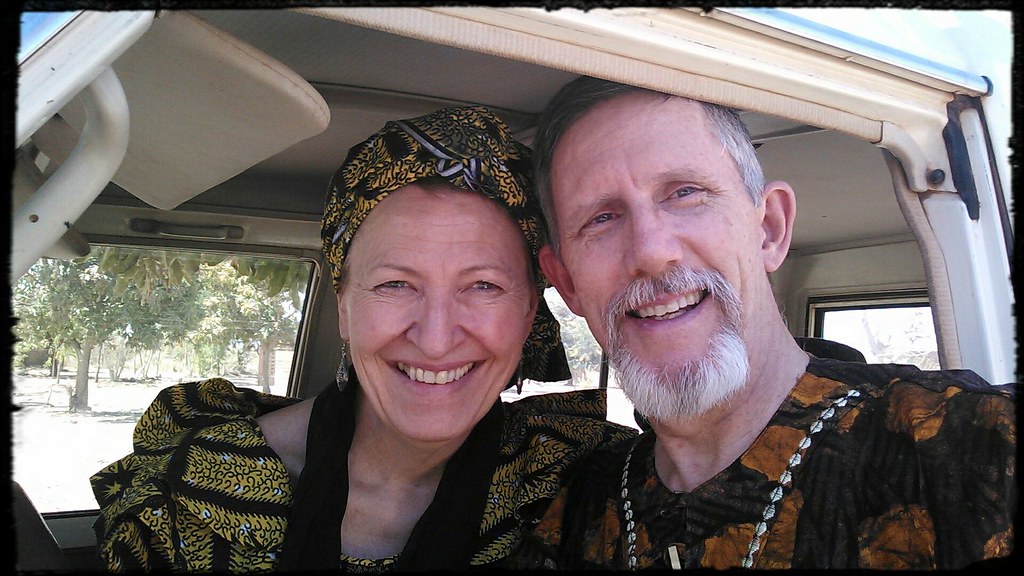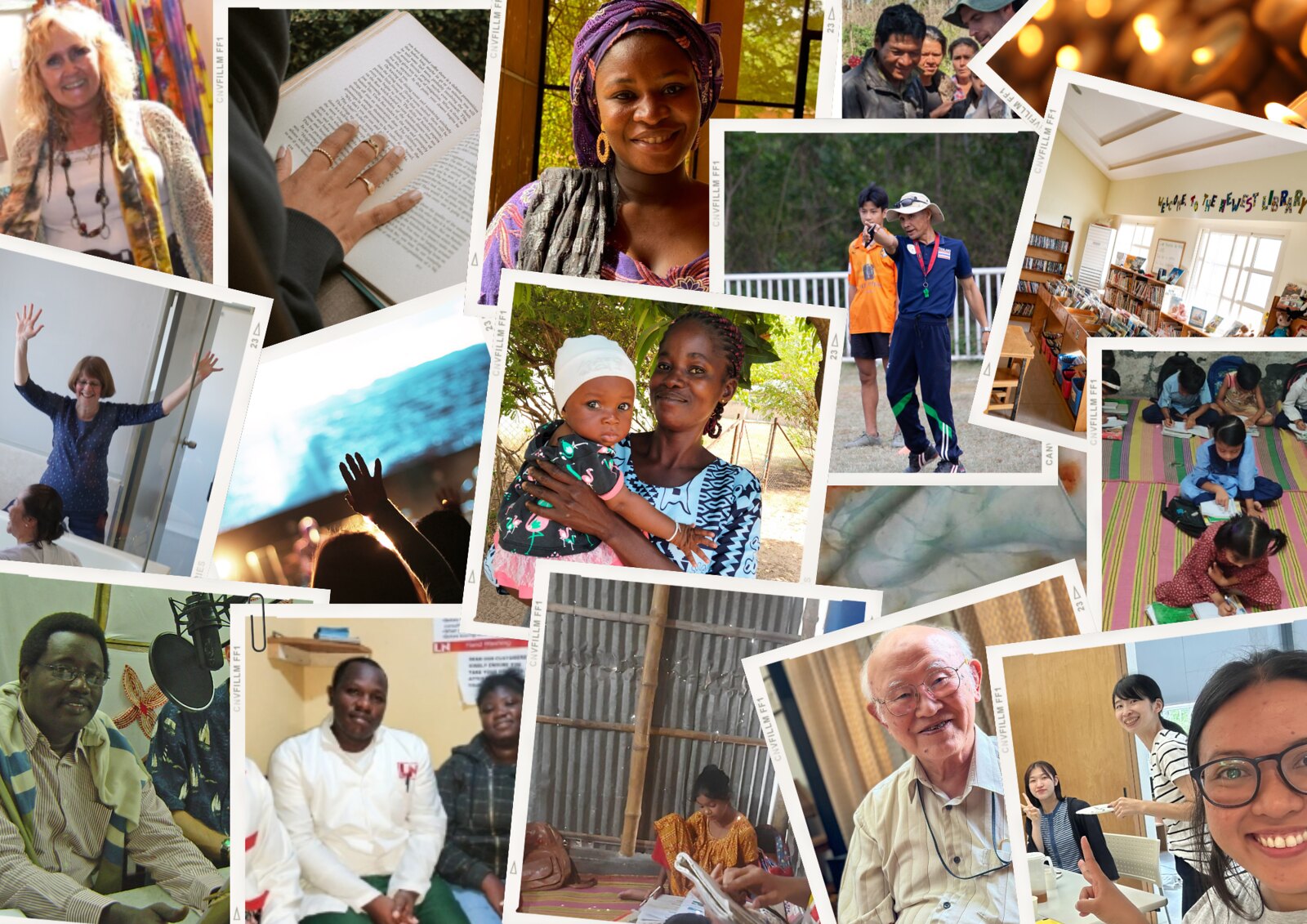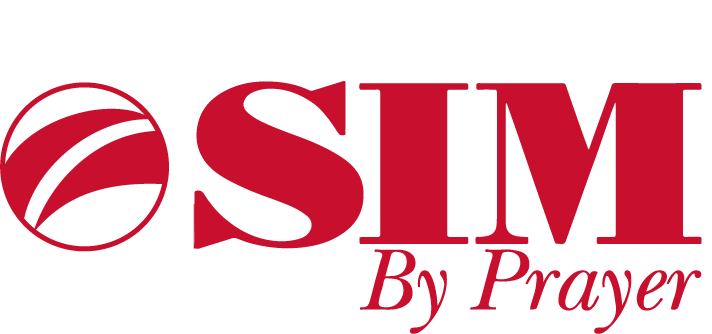Linking arms in Thailand
By Amy Bareham Chapman | Thailand in East Asia

Unsplash representative photo by Etienne Girardet of Chiang Mai, Thailand.
Chiang Mai and Ayutthaya sit just over 600 kilometres apart. Although the two Thai cities occupy opposite ends of the country, they are strung together by a common thread: Hope for Life Thailand.
Hope for Life was established as part of SIM’s response in Africa to HIV in the ‘90s. The organisation then moved into parts of Asia, including Thailand, where it has facilitated community outreach initiatives for almost 10 years.
Chiang Mai-based Jacqui Croxon, who is Hope for Life’s HIV Ministry Point Person, says: “HIV is one of the symptoms we see of these broader issues of broken relationships with self, with family, and with God … So now, our vision is to work where there is brokenness in families to see Christ transform relationships.”
When SIM identified Ayutthaya as one of the least reached places in Thailand, an opportunity arose to expand Hope for Life and introduce our Faithful Witness programme to the region. Faithful Witness, which aims to bring the good news of Jesus Christ to communities with limited exposure to the gospel, reports that Ayutthaya has just 11 local churches and an estimated 500 believers.
Mission worker Ruth Davies is helping develop the vision of Hope for Life programmes in Ayutthaya. She partners with a staff of three Thai locals to do this and calls them her phī̀n̂xng or her brothers and sisters. Together, they are exploring opportunities as they form connections and build trust with ministry partners.
The team has started by offering English lessons and visiting both a juvenile detention centre and a children’s emergency shelter. One of Ruth’s colleagues, Pheung, is passionate about art therapy. She provides a drop-in watercolour class for the community and encourages participants to share their emotions alongside the Hope for Life staff.
Ruth says, “I see this as a culturally relevant way to reach people. For the Thai Christians I know here, it’s actually their heart. Western Christians are more about evangelism and teaching, but for Thai believers, acts of mercy are really important.”
All of Ruth’s Thai team-mates are first-generation Christians and value having a missional colleague to do life with. She enjoys listening and prayerfully helping them pursue the Lord as they brainstorm ways to do the same for others.
She continues: “We see the brokenness; we know that it’s there. But the symptoms are overwhelming. It’s about finding those one or two symptoms we feel we’re equipped to help with.”
In both Chiang Mai and Ayutthaya, Hope for Life is prioritising the health and wellness of young people as families show troubling signs of generational damage. Serving those aged 25 and under is crucial for Jacqui and Ruth.
Many of those young people have to confront real and painful issues like teenage pregnancy and sexual exploitation. And it’s still common for parents to go away to find work, meaning many kids are raised by grandparents who are ill-prepared to navigate modern issues.
This tangle of threats perpetuates unhealthy cycles for young people. Jacqui, who is also Health and Community Development Advisor and Assistant Project Manager with Hope for Life Thailand says: “You have to stay on the journey with people because they’re up, then down…We want to share the impact [Hope for Life] is having, but the reality is that it’s not necessarily happily ever after, depending on the point in time for that particular person.”
Ruth adds: “The frustrating thing is that the opportunity to get to the gospel can seem so far away. You have to build years of networks and relationships.” She has experienced the cultural barriers firsthand, most recently while trying to help Ayutthaya practically during COVID-19. Because she is a foreigner, leadership of the juvenile detention centre fear she is more susceptible to the virus.
But, as Jacqui observes, this can create opportunities for God to strengthen the faith of others. “You can never relate to people in the community like our Thai colleagues can,” she says. “A lot of our work is releasing the [Thai] staff to go and do what they do well. If that means we do more of the administrative tasks, so be it.”
Life transformation rarely happens quickly, and Jacqui and Ruth are honest with themselves about this. As Ruth says, “You really do have to be a faithful witness. The faithful part comes first, before the witness part.”
Jacqui agrees, recalling a time when a leader asked how many people she had led to Christ that week. “I thought, oh gosh, I’m the worst missionary ever, I led no one.” She remembers the leader responding, “No, you led someone. Because everything we do is leading people towards Jesus.”
In an environment in which restoration can take decades, it is essential to rely on the Lord’s grace and divine timeline. Jesus himself demonstrated that discipleship is just as much a process as it is a destination.
Sometimes it seems the loose ends of mission work far outnumber the moments of arrival and completion. But in Chiang Mai and Ayutthaya, through the work of faithful witnesses like Jacqui and Ruth, it’s clear God is knitting Chiang Mai and Ayutthaya into the tapestry of his kingdom.
Pray:
• For Jacqui and Ruth’s teams to continue building relationships in their Thai communities.
• That God would give Hope for Life and Faithful Witness the wisdom to know where to invest time and resources given their teams’ limited capacity.
• For more people to help Hope for Life and Faithful Witness by pursuing full-time mission work in Thailand.
• That the local church would be empowered to address needs and grow in ministry.
• That the Chiang Mai team and the Ayutthaya team would have opportunities to meet and bond in the wake of COVID-19.
Related stories

Young women from rural Peru find discipleship and belonging in the city
As rural young women move to Peru’s cities for study or work, they face a world full of pressure, distraction, and isolation. Mission worker Lizzie is walking alongside them; offering friendship, discipleship, and a reminder of their worth in Jesus.

In Carrie’s classroom, Jesus is shaping hearts and minds for his kingdom
When mission workers with young families leave their home country, a major concern is how their children will get on. While the parents are out serving, the kids need stability, education, and spiritual nurturing. That’s where teachers like Carrie come in. Originally from Kansas, Carrie now teaches at a mission school in Liberia, part of Dakar Academy in Senegal, shaping young hearts and minds for God’s kingdom.

Ken & Gwen Baker have spent 40+ years engaged in mission work and adventures with God
Ken and Gwen Baker have retired after 43 years of faithful service with SIM — a life devoted to God, to their teammates, and to equipping others for ministry. They spent decades planting churches in West Africa, fostering intercultural ministry, and shaping mission training that continues to impact workers worldwide. As they step into a new season of life, their story serves as a powerful reminder of how God uses ordinary people, willing to follow his call, to build His church and transform lives.

